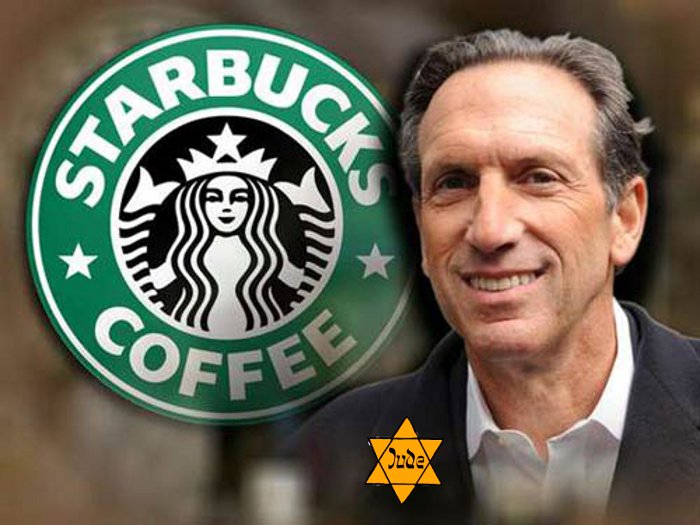Eli Stenson
Daily Stormer
March 18, 2015

Starbucks’s CEO is Jew Howard Schultz. He banned guns in Starbucks locations and supports homo marriage; now he wants his employees to discuss U.S. race relations with customers.
Starbucks published a full page ad in the New York Times on Sunday — a stark, black, page with a tiny caption “Shall We Overcome?” in the middle, and the words “RaceTogether” with the company logo, on the bottom right. The ad, along with a similar one on Monday in USA Today, is part of an initiative launched this week by the coffee store chain to stimulate conversation and debate about the race in America by getting employees to engage with customers about the perennially hot button subject.
Beginning on Monday, Starbucks baristas will have the option as they serve customers to hand cups on which they’ve handwritten the words “Race Together” and start a discussion about race. This Friday, each copy of USA Today — which has a daily print circulation of almost 2 million and is a partner of Starbucks in this initiative — will have the first of a series of insert with information about race relations, including a variety of perspectives on race. Starbucks coffee shops will also stock the insert.
In a video addressing Starbucks’ nearly 200,000 workers, 40% of whom are members of a racial minority, Schultz dismissed the notion that race was too hot a topic business-wise for Starbucks to tackle.
“I reject that. I reject that completely,” he said in the video address. “It’s an emotional issue. But it is so vitally important to the country,” he continued, pointing to that the United States is “so much better” than what the current state of race relations portray it to be.
What customer desires to be lectured on race when all they desire is coffee? And if you’re in line, would you honestly desire to wait even longer because a White customer and a Black barista are arguing over “police brutality” and muh Black Lives Matter?
If any of you ever happen to visit Starbucks, I encourage you to bring up our side of the story to one of the baristas. If anything, it allows you to grow more comfortable with discussing our views with strangers, which may act as a springboard to participating in more activism.
